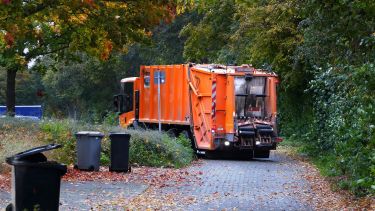Fleet energy optimisation in the Sheffield City Region
Erica Ballantyne’s work with Sheffield City Council and Veolia to create a new approach to modelling fleet vehicle energy use has shown it would be possible to run Sheffield’s entire refuse collection rounds on purely electric vehicles.

This cross-disciplinary project with Engineering and the University of Sheffield Energy Institute modelled and predicted the energy usage for an entirely electric Refuse Collection Vehicle (eRCV) fleet across the Sheffield City Region.
The project was undertaken by the University of Sheffield, in collaboration with Sheffield City Council (SCC) and Veolia, utilising data from the council fleet’s depot and bin collection locations, and Veolia’s operational data for their current RCV fleet. It was then possible to predict the daily, weekly and annual energy use for an entire fleet of eRCVs on the Sheffield refuse collection rota.
From this work, an entirely novel approach to modelling fleet vehicle energy use has been assembled. The research has helped to reassure the partners (SCC and Veolia) that, despite the topography and geographical expanse of the Sheffield City Region, it will be possible to run all of the refuse collection rounds within Sheffield by operating a purely electric fleet of refuse collection vehicles.
The results have demonstrated the potential energy savings and CO2 emission reductions compared to conventional diesel vehicles that can be achieved if the current refuse collection vehicle fleet were to convert to pure electric.
Academic involved: Dr Erica Ballantyne
Find out more about the work of the Operations Management and Decision Sciences Research Centre that Erica Ballantyne leads.
